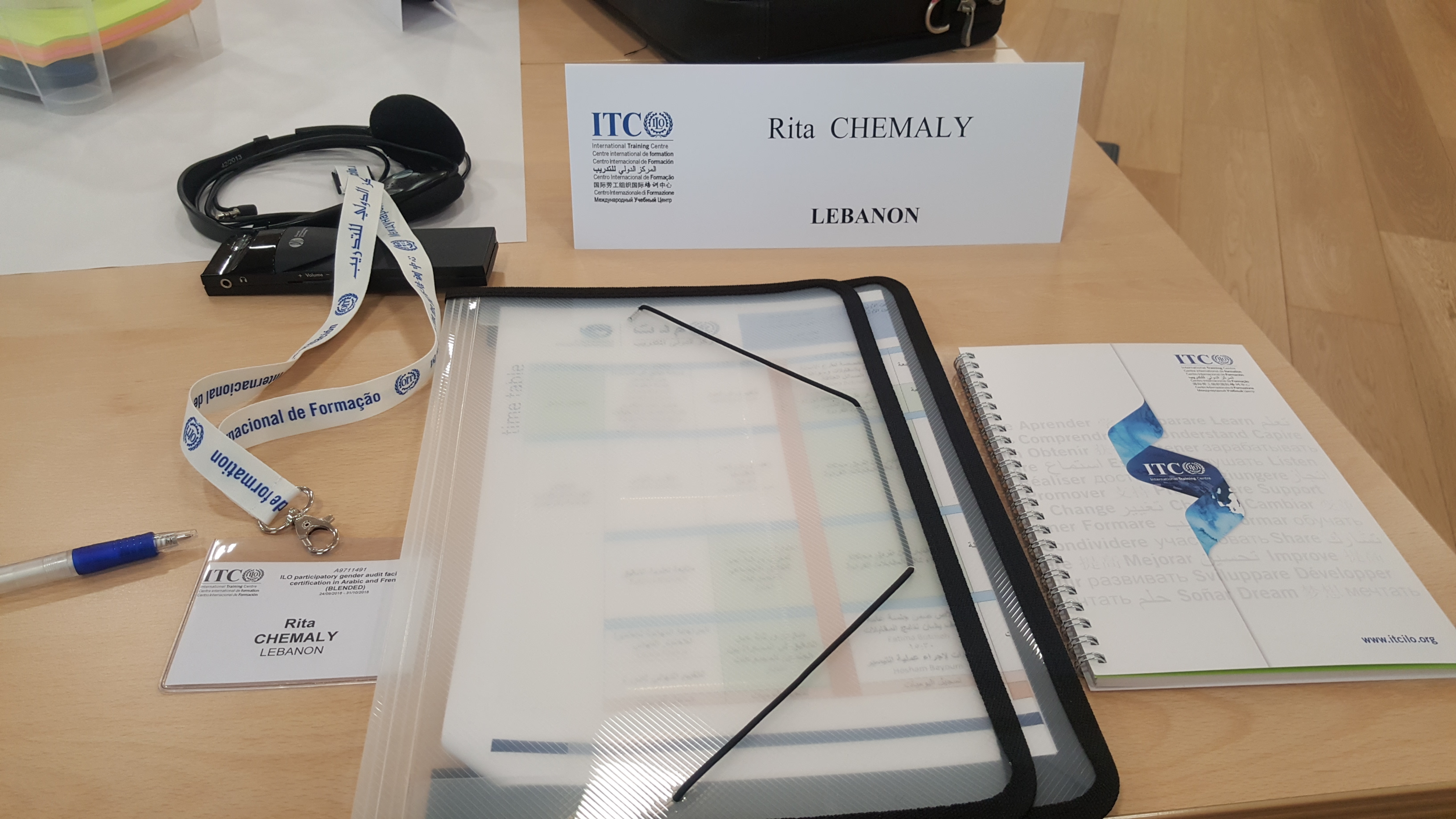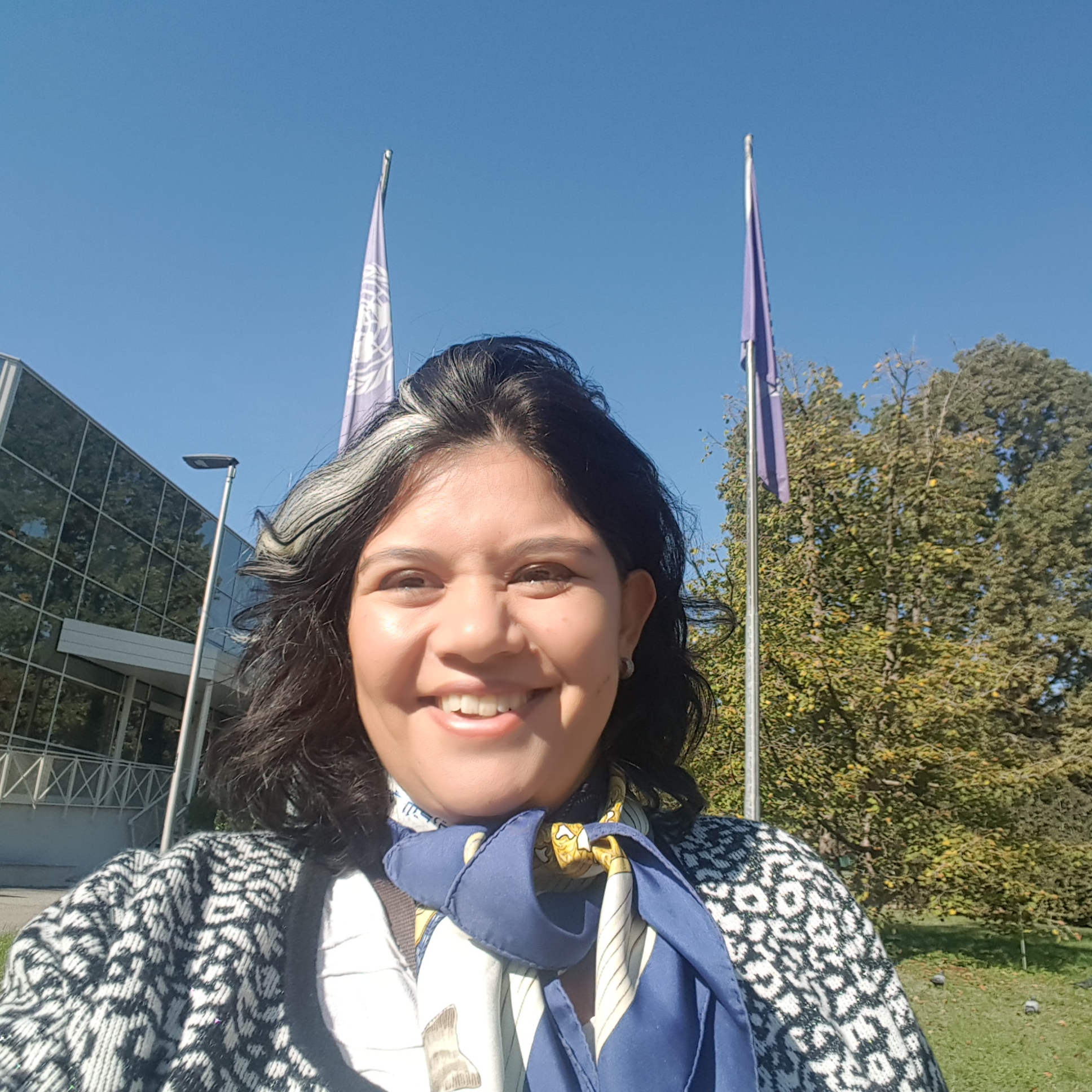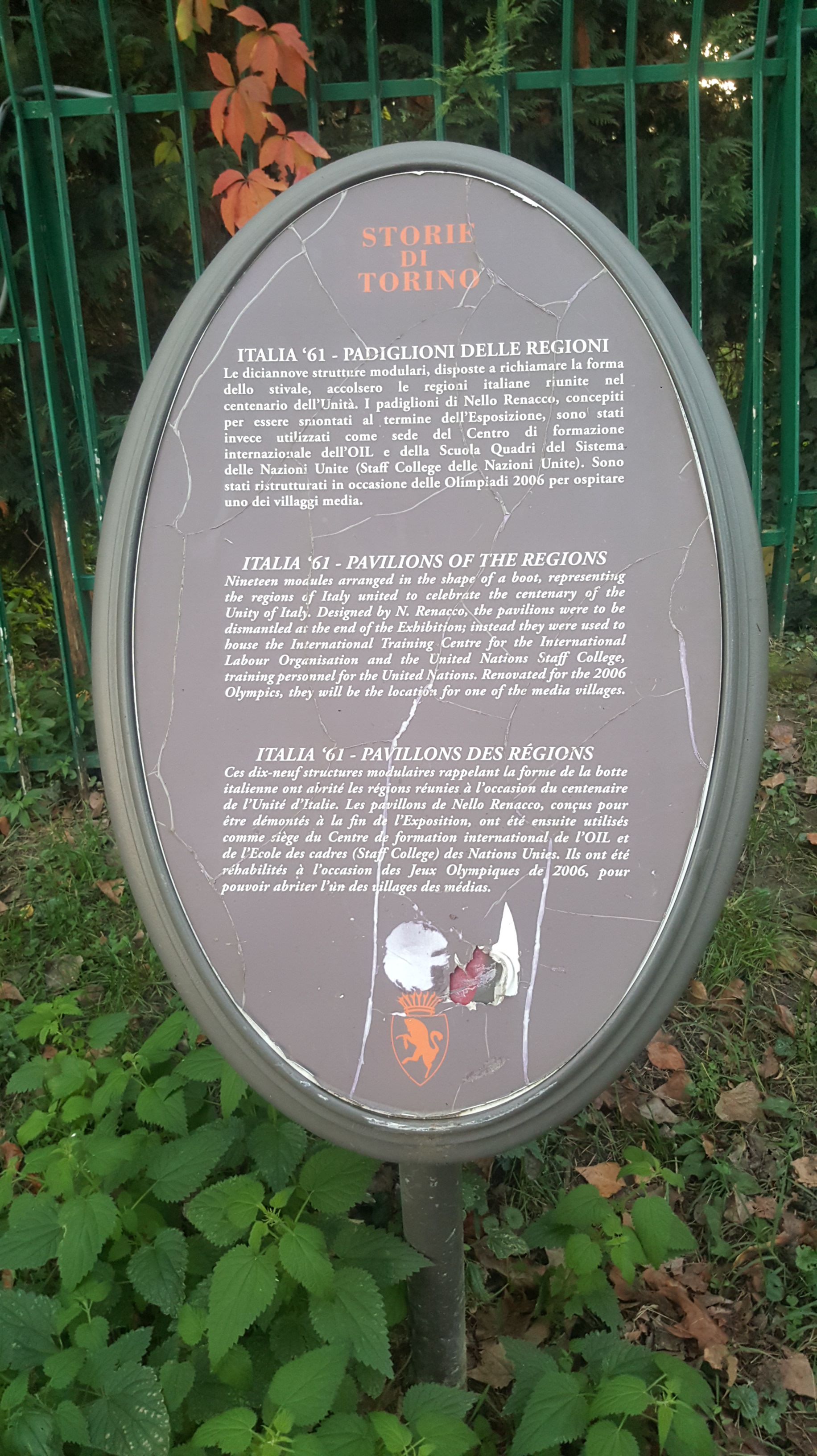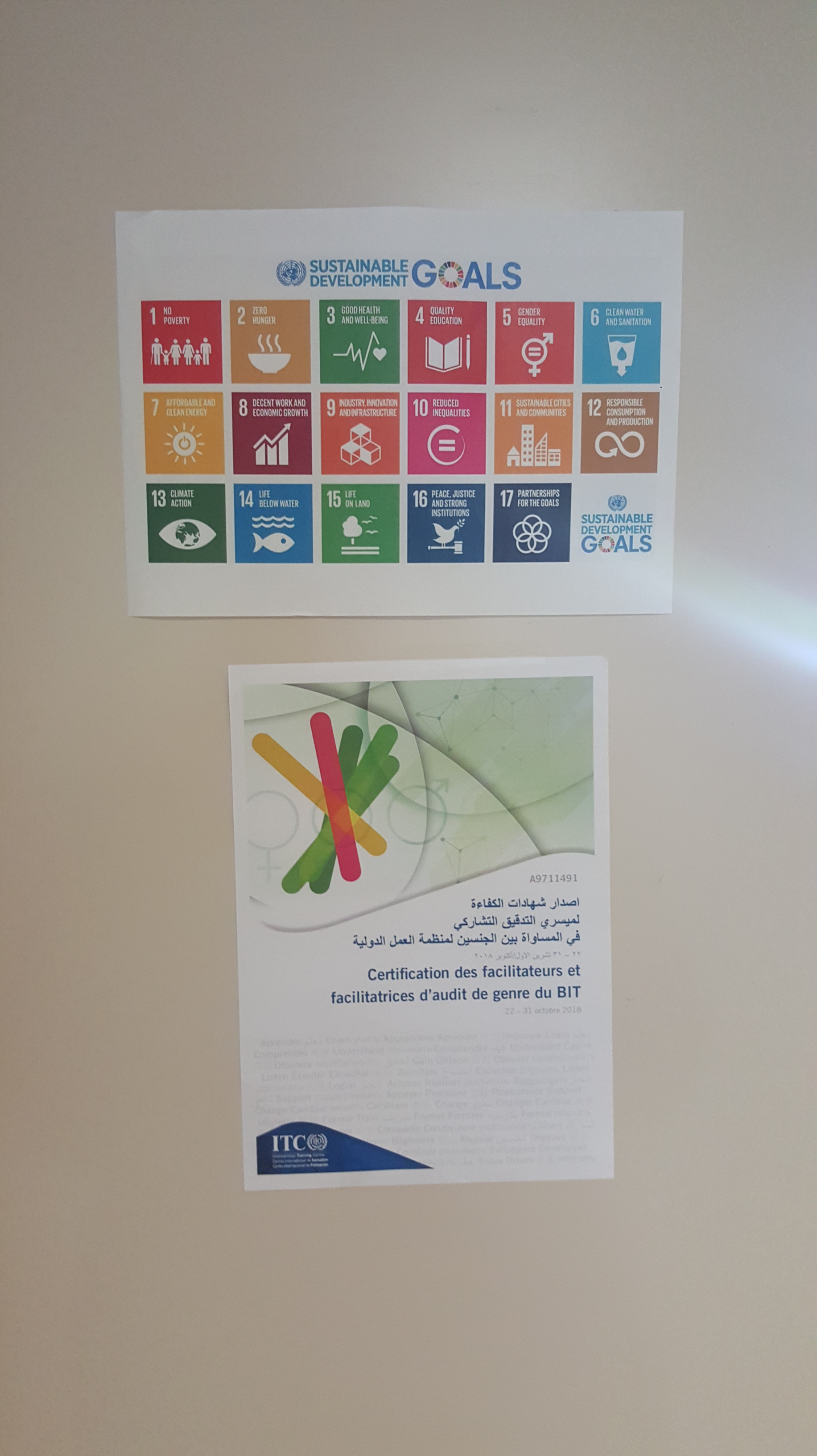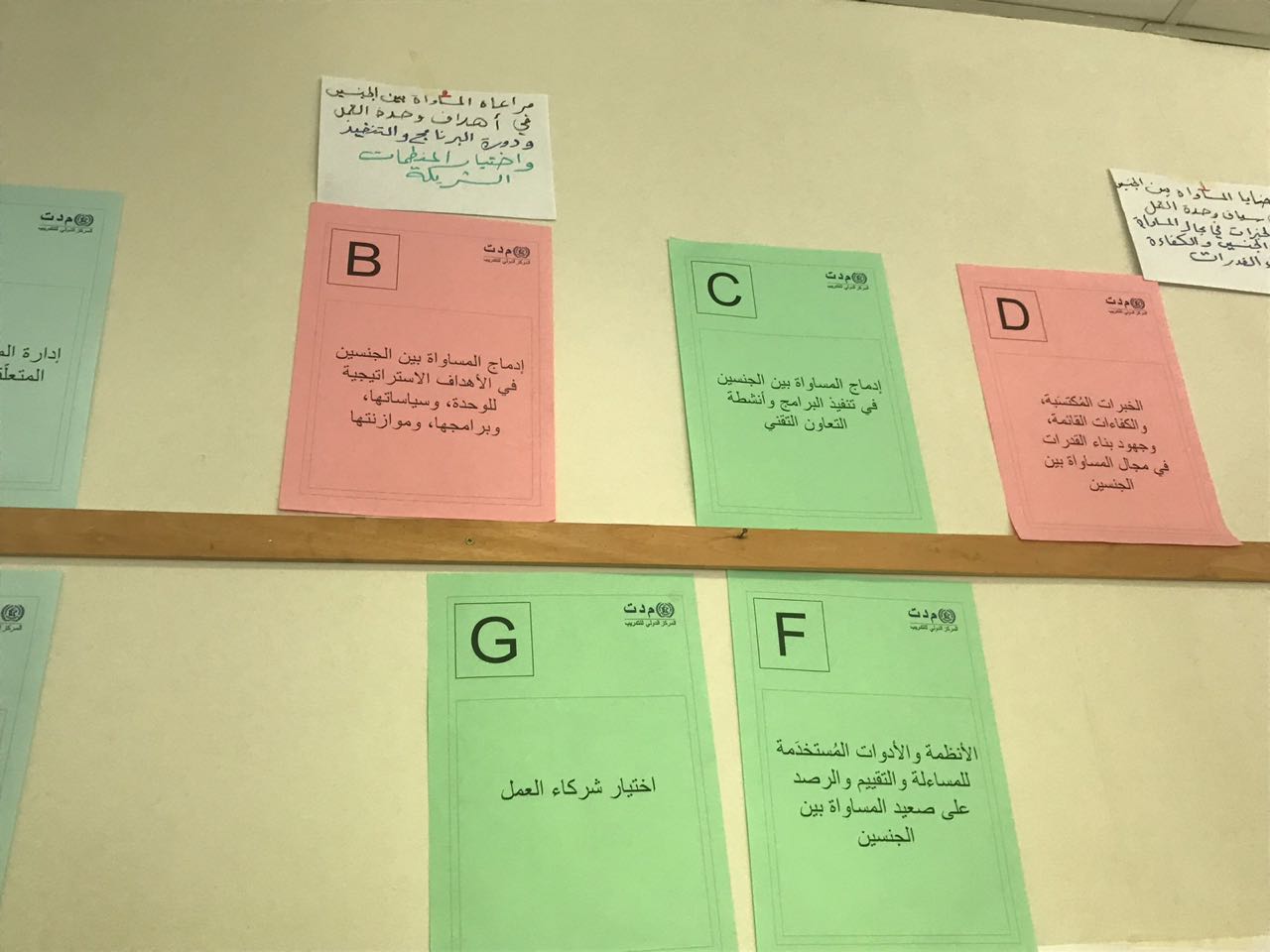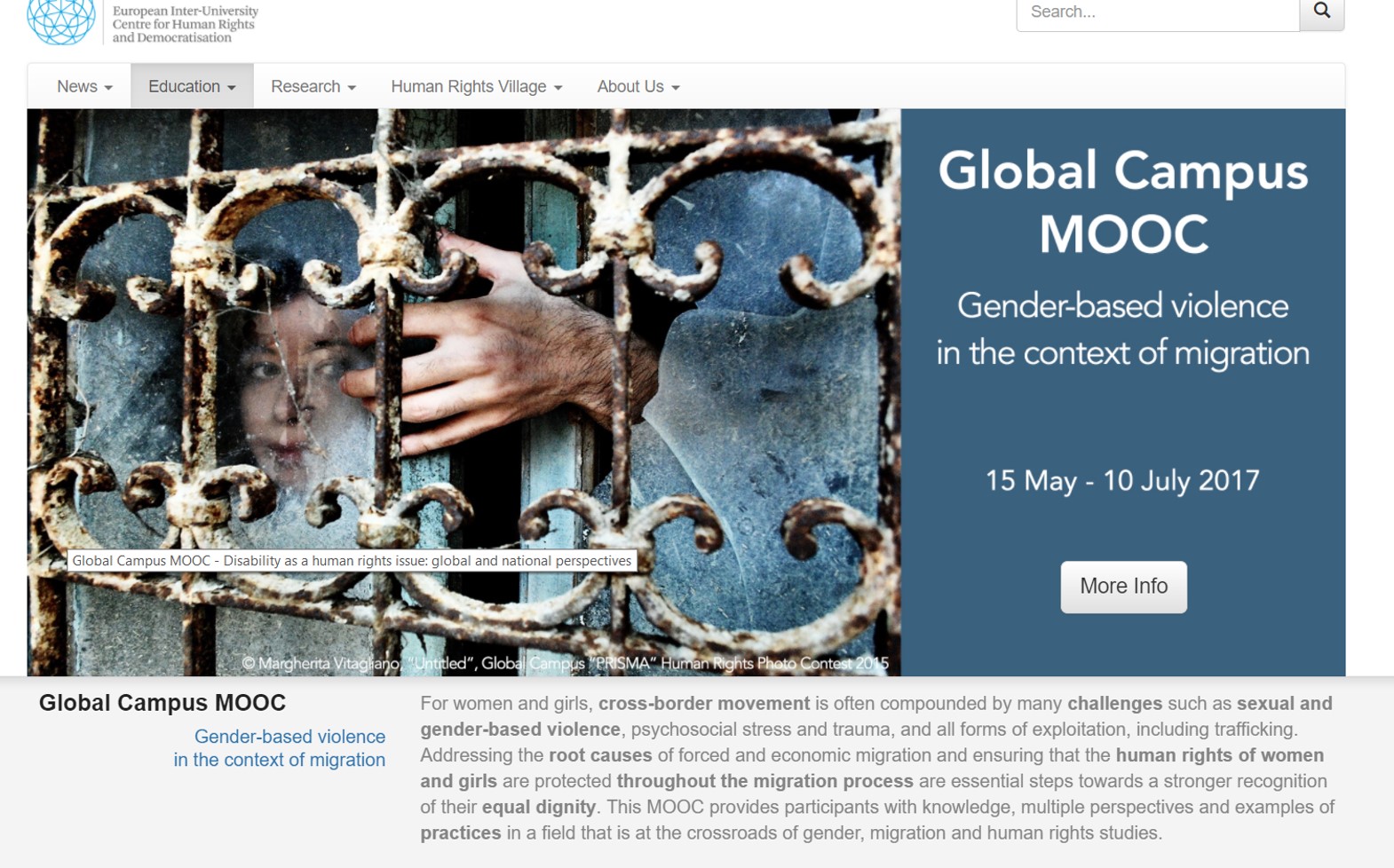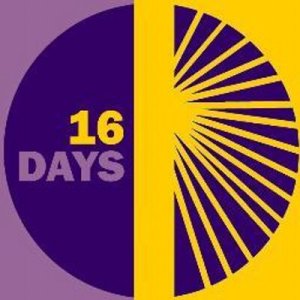Today the National Commission for Lebanese women and UNFPA, worked hard on disseminating the Concluding observations published by the United Nations Committee on Lebanon. The concluding observations are a kind of ” findings” that cover how each country is implementing the Convention on the Elimination of All Forms of Discrimination, #CEDAW, this year these findings ” highlight positive developments ” and most importantly highlight ” main matters of concern and recommendations”.
UN committee give those observations after holding discussions with the government delegation and the NGOs of the country.
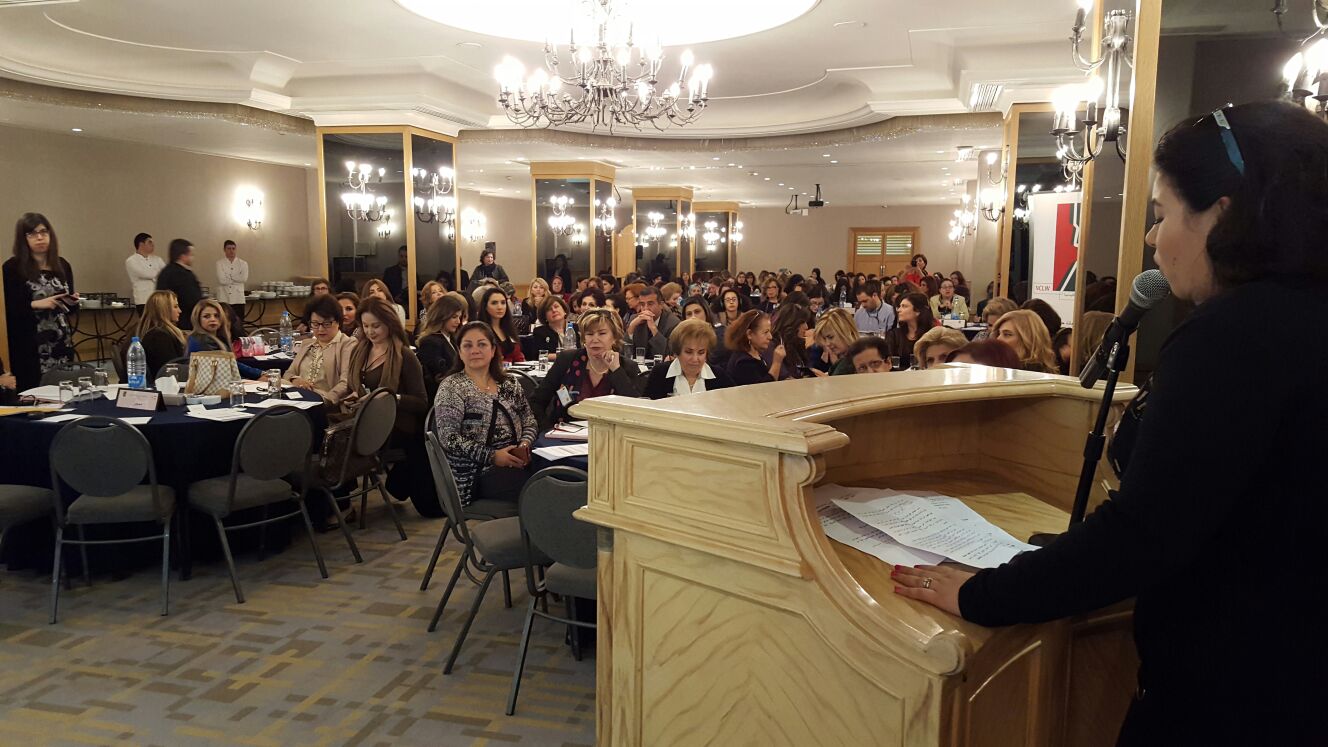
The Last recommendation of this batch was already implemented by NCLW and UNFPA: Disseminating the observations widely! Picture taken by Rita Azzi
This year the main area of concern were numerous:
I am listing their titles below:
- Refugee, asylum-seeking and stateless women\
- Parliament
- Withdrawal of reservations
- Constitutional framework
- Legislative framework
- Access to Justice
- National machinery for the advancement of women
- Stereotypes
- Violence against women
- Trafficking and exploitation of prostitution
- Participation in political and public life
- Education
- Employment
- Women migrant workers in domestic service\
- Women Palestine refugees
- Health
- Rural women
- Marriage and family relations
as for the main areas of concerns: here is their translation to arabic for those who wish to get a quick look! (Lebanon cedaw Areas of concerns in arabic Rita Chemaly)
I am copy pasting for those who are interested in the Principal areas of concern and recommendations as they were published in the document of the UN #cedaw committee.
Refugee, asylum-seeking and stateless women
- The Committee commends the State party for the open border and reception policy that it has had for years regarding refugees from Palestine, Iraq and Syria, for hosting over 2 million refugees and its remarkable and sustained efforts to ensure the protection of refugees and asylum seekers. However, it takes note of the policy paper on Syrian displacement in Lebanon approved by the Council of Ministers on 23 October 2014 and the three main priorities for managing the displacement crisis. The Committee is concerned that the 1962 Law regulating the Entry, Stay and Exit to/in/from Lebanon does not distinguish between asylum seekers/refugees and migrants. The Committee is further concerned about the high number of reported cases of child, early and forced marriage among Syrian refugee women and girls and the lack of official data on this phenomenon, as well as on the number of stateless persons in Lebanon.
- The Committee recommends, in line with its general recommendation No. 32 (2014) on the gender-related dimensions of refugee status, asylum, nationality and statelessness of women, that the State party:
(a) In the implementation of its policy paper on Syrian displacement in Lebanon approved by the Council of Ministers on 23 October 2014, ensure that the principle of non-refoulement is upheld, including for women and girls in need of international protection, by ensuring access to its territory, establishing gender-sensitive asylum procedures, and including gender-based violence as a ground for asylum, in line with Articles 2 and 3 of the Convention;
(b) Review the 1962 Law regulating the Entry, Stay and Exit to/in/from Lebanon, to distinguish between the protection needs of asylum seeking and refugee women on one hand and migrant women on the other hand;
(c) Seek technical support for the establishment of a data collection system on incidents of gender-based violence against women, in particular sexual violence, and incidents of child, early and forced marriages of refugee women and girls, and provide victims with medical and psychosocial assistance and access to justice, in line with Article 2 of the Convention, and the Committee’s General Recommendation No. 33 (2015) on women’s access to justice;
(d) Conduct a census to ascertain the number of stateless persons in its territory and take the necessary measures, provide them with civil registration documents and consider ratifying the 1951 Convention Relating to the Status of Refugees and the 1967 Additional Protocol, the 1954 Convention relating to the Status of Stateless Persons and the 1961 Convention on the Reduction of Statelessness;
(e) Enlist and mobilize the support of the international community to share the economic burden and to provide for the needs of the refugee population, including resettlement and humanitarian admission opportunities and continue cooperating with UNHCR;
(f) Adopt a national action plan to implement United Nations Security Council resolution 1325 (2000) on women, peace and security, and ensure women’s participation at all stages of peace processes, in line with the Committee’s General Recommendation No. 30 (2013) on women in conflict prevention, conflict and post-conflict situations, and seek the support of the international community for the implementation of its obligations.
Implementation
- The Committee is fully aware of the efforts undertaken by the State party to adopt a legal and institutional framework protecting and promoting women’s rights. The Committee urges the State party to consider the recommendations contained in the present concluding observations as requiring a high priority for national mobilization and international support. The Committee urges the State party to promptly implement the present concluding observations by setting up a coordination mechanism with all relevant State institutions at all levels, the parliament and the judiciary, and the civil society, as well as with its international partners.
Parliament
- The Committee stresses the crucial role of the legislative power in ensuring the full implementation of the Convention (see the statement by the Committee on its relationship with parliamentarians, adopted at the forty-fifth session, in 2010). It invites the Parliament, to take all measures necessary to unblock the current institutional crisis and, in line with its mandate, to take the steps necessary for the implementation of the present concluding observations.
Withdrawal of reservations
- Notwithstanding the detailed explanations given by the delegation, the Committee remains concerned about the State party’s reluctance to withdraw its reservation to:
(a) Article 9 (2), with a view to granting women equal rights with men with respect to the nationality of their children.. The Committee also notes with concern that the Council of Ministers repeatedly endorsed the discriminatory provision in Decree No. 15 of 1925 on Lebanese Nationality establishing that nationality is exclusively based on patrilineal descent;
(b) Article 16 (1) (c), (d), (f) and (g) regarding equality in marriage and family relations.
- The Committee calls upon the State party to:
(a) Withdraw its reservation made upon accession to the Convention regarding article 9 (2) and repeal Decree No. 15 of 1925 on Lebanese Nationality and adopt legislation ensuring women equal rights with men to confer their nationality to their foreign spouse and children;
(b) Withdraw its reservation made upon accession to the Convention regarding article article 16 (1) (c), (d), (f) and (g).
(c) Initiate a dialogue with the leaders of religious sects communities and religious scholars, taking in consideration best practices in the region, with a view to overcome the resistance to the withdrawal of its reservations to the Convention.
Constitutional framework
- The Committee remains concerned that the Lebanese Constitution is still not in full conformity with the Convention and does not explicitly prohibit discrimination on the basis of sex. It is also concerned about the limited scope and applicability of the procedure for challenging laws on the basis that they are incompatible with the State party’s Constitution and its international legal obligations.
- The Committee reiterates its previous recommendations to include in the Constitution a provision defining and prohibiting discrimination on the basis of sex, in line with article 2 (a) of the Convention (CEDAW/C/LBN/CO/3, paras. 10 and 11 and A/60/38, para. 95 adopted in 2005) and to amend articles 9 and 10 of the Constitution to ensure gender equality in the context of religious freedom and sectarian diversity.
Legislative framework
- The Committee welcomes the initial review legislation containing discriminatory provisions against women by the State party but is concerned about the delays in adopting the required amendments. The Committee welcomes the amendment of the Criminal Code and the repeal of its Article 562. However, it is concerned about the remaining discriminatory criminal law provisions as well as personal status laws that discriminate against women within sects and between women across different sects. The Committee is also concerned about discriminatory provisions in labour, social security and municipal elections laws.
- The Committee recommends that the State party expedite a comprehensive legislative review to ensure compatibility with the provisions of the Convention, and, upon resolution of the institutional crisis and the re-functioning of the government, urges it to amend or repeal all articles of the Criminal Code, personal status laws as well as labour, social security and municipal election laws that discriminate against women.
Access to Justice
- The Committee is concerned about the obstacles women face when accessing the justice system, in particular the lack of adequate legal aid services and the lack of knowledge and sensitivity of justice officials regarding women’s rights.
- The Committee in line with its general recommendation No. 33, on women’s access to justice, recommends that the State party:
(a) Institutionalize systems of legal aid and public defence that are accessible, sustainable and responsive to the needs of women and ensure that such services are provided in a timely, continuous and effective manner at all stages of judicial or quasi-judicial proceedings, including alternative dispute resolution mechanisms;.
(b) Take immediate steps, including capacity-building and training programmes for justice system personnel on the Convention and women’s rights , to ensure that religious courts harmonize their norms, procedures and practices with the human rights standards enshrined in the Convention and other international human rights instruments.
National machinery for the advancement of women
- The Committee regrets the institutional weakness, the limited status, the insufficient decision-making authority, human, technical and financial resources of the national machinery for the advancement of women and the obstacles faced concerning coordination and gender mainstreaming throughout all government bodies. The Committee is concerned about the low level of coordination between the gender focal points within the line Ministries with the Department of Women’s Affairs of the Ministry of Social Affairs. The Committee is also concerned about the limited and inadequate information provided on the implementation of the National Strategy for Women in Lebanon.
- The Committee reiterates its previous recommendation (CEDAW/C/LBN/CO/3, para. 21) that the State party:
(a) Give urgent priority to strengthen the institutional capacity of the national machinery for the advancement of women, and provide it with the mandate, decision-making power and human, technical and financial resources that are necessary to work effectively for the promotion of equality of women and men and the enjoyment of their human rights;
(b) Institutionalize and strengthen the system of gender focal points in line Ministries and other public institutions in order to achieve an effective gender mainstreaming strategy throughout its policies and programmes;
(c) Ensure coordination between the national machinery and its cooperation with civil society and women’s non-governmental organizations with a view to promote a participatory planning for the advancement of women.
(d) Accelerate the implementation of the National Strategy for Women in Lebanon by adopting a plan of action that clearly defines the competencies of national and local authorities regarding the National Strategy, and supported by a comprehensive data collection system to monitor its implementation.
Stereotypes
- The Committee is concerned about the discriminatory patriarchal stereotypes about the roles and responsibilities of women and men in society and in the family and the role of the media in overemphasizing the traditional role of women as mothers and wives or commodities thus undermining women’s social status and their educational and professional careers. The Committee notes with concern that the advertising sector persistently convey stereotyped and sometimes degrading images of women.
- The Committee recommends that the State party take all measures necessary to raise awareness of the media and the advertising sector to eliminate discriminatory gender stereotypes, to ensure that women are not portrayed only as wives and mothers or commodities and to promote positive images of women as active participants in political, economic and social life.
Violence against women
- The Committee welcomes the adoption of Law No. 293 of 7 May 2014 on the protection of women and other family members from domestic violence. However, the Committee notes with concern the absence in the law of an explicit reference to gender-based violence against women and of provisions specifically criminalizing marital rape, crimes committed in the name of so-called honour, and other harmful practices. It is also concerned that the law continues to maintain discriminatory provisions with regard to the criminalization of adultery and that it takes no precedence over customary and personal status laws. The Committee further regrets the lack of disaggregated data on the number of reports, investigations, prosecutions and convictions in cases of violence against women, including sexual harassment, domestic violence, assault and rape, including by security forces.
- The Committee urges the State party to:
(a) Amend Law No. 293 on domestic violence, in line with the Committee’s general recommendation No. 19 (1992) on violence against women, to specifically criminalize gender-based violence against women, marital rape, crimes committed in the name of so-called honour, and other harmful practices;
(b) Remove discriminatory provisions between women and men regarding adultery and ensure that Law No. 293 on the protection of women and other family members from domestic violence takes precedence over customary and personal status laws;
(c) Collect data, disaggregated by sex, age, nationality and relationship between the victim and the perpetrator, on the number of reported cases of violence against women, of prosecutions, convictions and sentences imposed on perpetrators
(d) Strengthen the legal, medical and psychological support to victims of violence against women;
(e) Ensure that all allegations of sexual harassment are recorded and that all allegations of assault and rape, are duly investigated, prosecuted and sanctioned and that victims have access to appropriate redress, including compensation. Ensure that all allegations of assault and rape by members of the security forces are investigated by an independent judicial authority.
Trafficking and exploitation of prostitution
- The Committee welcomes the adoption of the Anti-trafficking Law No. 164 of 2011 but notes with concern that the artist visa scheme of 1962 facilitates sexual exploitation of women migrant workers in the entertainment sector, and that the law no. 164 is not effectively being enforced, that it criminalizes victims and is without prejudice to the artist visa scheme. It is also concerned about the absence of an early identification and referral system for victims of trafficking who are frequently arrested, detained and deported without adequate protection and assistance for victims and weak coordination between government security, justice and social services as well as lack of cooperation with civil society.
- The Committee recommends that the State party:
(a) Review and revise the artist visa scheme to ensure it is not misused for the sexual exploitation of women and take appropriate steps to decrease the demand side of prostitution;
(b) Amend article 523 of the Criminal Code as necessary to ensure that victims of trafficking are not subjected to prosecution;
(c) Provide mandatory gender-sensitive capacity-building for judges, prosecutors, border police, immigration authorities and other law enforcement officials to ensure the strict enforcement of the Anti-Trafficking Law by promptly prosecuting all cases of trafficking in women and girls and adequately punishing traffickers;
(d) Ensure early identification and referral to protection of trafficking victims; and strengthen assistance to victims of trafficking, including by granting temporary residence permits to victims of trafficking irrespective of their ability or willingness to cooperate with the prosecution authorities and by providing them access to alternative income opportunities, respectively;
(e) Provide victims of trafficking with adequate access to health care and counselling and strengthen those services by providing targeted training to social workers;
(f) Ensure inter-agency coordination between government security, justice and social services to combat trafficking and strengthen cooperation with civil society.
Participation in political and public life
The Committee is concerned about the gross underrepresentation of women in public and political life; the lack of capacity-building for political parties and labour unions representatives on women’s rights and regrets that the draft law providing for a 30 per cent minimum quota for women’s representation on candidates lists of political parties for parliamentary elections was not adopted. It is concerned about the strong political resistance to the adoption of temporary special measures to effectively promote women’s equal participation in public and political life.
- The Committee recommends that the State party:
(a) Take all appropriate measures to increase the number of women in elected and appointed office at all levels, so as to comply with article 7 of the Convention;
(b) Take concrete measures, including temporary special measures in accordance with article 4 (1) of the Convention, the Committee’s general recommendation no. 23 on women in political and public life and general recommendation no. 25 on temporary special measures, and to establish concrete goals and timetables in order to accelerate the increase in the representation of women in all spheres of public and political life;
(c) Implement awareness-raising campaigns to highlight the importance to society as a whole of women’s full and equal participation in leadership positions in all sectors and at all levels and explain the purpose of introducing temporary special measures such as quotas as a necessary strategy for accelerating realization of women’s de facto equality..
Education
- The Committee notes the recommendation in the study by the National Committee for the Follow-up of Women’s Issues and the Centre for Educational Research and Development to eliminate discriminatory gender stereotypes in school books. However, the Committee is concerned that the State party’s has not taken effective steps to remove such stereotypes from school curricula and textbooks. It is also concerned about the lack of training for teachers on women’s rights and gender equality and limited career guidance encouraging women and girls to choose non-traditional career paths, in particular in the fields of science and technology.
- The Committee recommends that the State party intensify its efforts in reviewing school curricula and textbooks to eliminate any stereotyped and patriarchal roles of women. It reiterates its previous recommendation (CEDAW/C/LBN/CO/3, para. 25) that the State party enhance training for teachers on gender, women’s rights and equality. The Committee further recommends that the State party give priority to eliminating traditional stereotypes and structural barriers that may deter girls from enrolling in traditionally male-dominated fields of study, such as science and technology, and step up efforts to provide girls with career counselling on non-traditional career paths including non-stereotypical vocational training.
Employment
- The Committee welcomes the adoption of Laws No. 266 and No. 267 of 15 April 2014 extending maternity leave in the public and private sectors to 10 weeks with full pay. However, the Committee is concerned about the lack of measures to promote the concept of shared family responsibilities and to combat the difficulties women face in combining work and family responsibilities. The Committee is also concerned about women’s limited access to the formal labour market and about the absence of legislation criminalizing sexual harassment in the work place. The Committee is further concerned about the occupational segregation and the high percentage of women in low paid jobs as service sector workers and salespersons, administrative staff and mid-level professions as well as gender pay gaps.
- The Committee calls on the State party to:
(a) Promote equal sharing of family and domestic responsibilities between women and men, including by introducing compulsory paternity or shared parental leave following childbirth;
(b) Take measures, including temporary special measures in line with article 4 (1) of the Convention and General Recommendation No. 5 (1988) on temporary special measures, such as incentives for employers to recruit women, introduce flexible working arrangements and strengthen professional training for women, with a view to enhancing women’s access to the formal labour market;
(c) Adopt legislation criminalizing sexual harassment in the work place;
(d) Take concrete measures to address horizontal and vertical segregation including by promoting the equal participation of women in highly skilled jobs and senior management positions; providing counselling and placement, that stimulate their on-the-job career development and upward mobility in the labour market; stimulating the diversification of occupational choices by both women and men; encouraging women to take up non-traditional jobs, especially in science and technology, and men to seek employment in the social sector and providing women with access to effective job training, retraining, counselling and placement services that are not limited to traditional employment areas;
(e) Take concrete measures to close the gap between women’s and men’s pay and to implement the principle of equal pay for work of equal value including by establishing a body responsible for conducting job evaluation schemes with gender-neutral criteria.
Women migrant workers in domestic service
- The Committee welcomes the various measures adopted by the State party to protect the rights of women migrant domestic workers, including by issuing unified contracts, requiring employers to sign up to an insurance policy, regulating employment agencies, adopting a law criminalizing human trafficking, and integrating women migrant domestic workers in the Social Pact and the National Strategy for Social Development. However, the Committee notes with concern that these measures have proved insufficient to ensure respect for the human rights of women migrant domestic workers. The Committee is equally concerned about the rejection by the Ministry of Labour of the application of the National Federation of Labour Union to establish a Domestic Workers’ Union and the .absence of an enforcement mechanism for work contracts of women migrant domestic workers; limited access by women migrant domestic workers to health care and social protection; and the non-ratification of ILO convention No. 189. The Committee is concerned about the high incidence of abuse against women migrant workers in domestic service and the persistence of practices such as the confiscation of passports by employers, the maintenance of the “Kafala system” which puts workers at risk of exploitation and make it difficult for them to leave abusive employers; obstacles affecting domestic workers’ access to justice, including fear of expulsion, insecurity of residence during procedures. The Committee is deeply concerned about the disturbing reports of documented deaths of migrant domestic workers from unnatural causes, including suicide and falls from tall buildings and the failure of the State party to investigate into those deaths.
- The Committee, in line with its General Recommendation No. 26 (2008), on Women Migrant Workers, recommends that the State party:
(a) Raise awareness among women migrant domestic workers of their human rights under the Convention, and monitor the work of employment agencies, including by establishing an enforcement mechanism to ensure that the same contracts are used in the State party and in countries of origin;
(b) Expedite the adoption of the draft law regulating domestic employment with adequate sanctions for employers engaging in abusive practices and ratify ILO Convention No. 189 (2011) on decent work for domestic workers;
(c) Abolish the “Kafala system” and ensure the effective access to justice, of women migrant domestic workers including by guaranteeing their safety and residence during procedures;
(d) Promptly investigate, prosecute and sanction all reports of deaths of women migrant domestic workers from unnatural causes;
(e) Take the measures necessary to protect the rights of women migrant domestic workers including by approving the establishment of a Domestic Workers’ Union.
Women Palestine refugees
- The Committee is concerned about restrictions on the right to work of Palestine refugee women.
- The Committee recommends that the State party review and amend its labour laws to ensure Palestine refugee women’s right to work, namely by providing them with access to the labour market in the State party.
Health
- The Committee welcomes the adoption of the “Comprehensive Primary Health Care Package and Services” by the Ministry of Public Health in 2013, the establishment of primary health care centres throughout the State party and the progress achieved in reducing maternal mortality. The Committee is, however, concerned about the limited access of women and adolescent girls to sexual and reproductive health services in rural and remote areas in the State party. It is also concerned about insufficient monitoring of private health care providers, which offer most of the specialized health services for women. The Committee further notes with concern the high number of unsafe abortions due to the strict criminalization of abortion and the delay in introducing age-appropriate education on sexual and reproductive health and rights at the primary, intermediate and secondary levels of education.
- The Committee recommends that the State party provide comprehensive health services, in particular sexual and reproductive health services, in each region in relation to area and population size; take measures to adequately monitor the performance of private health care providers, and introduce age-appropriate education on sexual and reproductive health in the curricula at the primary, intermediate and secondary levels of education. The Committee also recommends that the State party legalize abortion at least in cases of threats to the life or health of the mother, rape, incest, and severe fetal impairment and that it increase women’s access to safe abortion and post-abortion care services.
Rural women
- The Committee welcomes the creation in 2008 of the National Observatory for Women in Agriculture and Rural Areas by the Ministry of Agriculture. The Committee notes with concern the lack of updated disaggregated data on women’s participation in the agricultural sector. It remains concerned about the exclusion of women agricultural seasonal workers from the protection of the Labour Code and the limited initiatives for women’s access to rural entrepreneurship through technical assistance, micro credit facilities and bank accounts.
- The Committee reiterates its previous recommendation that the State party collect updated disaggregated data on women working in the agricultural sector, adopt legislation for the protection of women agricultural seasonal workers and strengthen the support for the entrepreneurial initiatives of women in the rural areas.
Marriage and family relations
- The Committee recommends that the State party:
(a) Adopt an optional civil personal status law based on the principles of equality and non-discrimination and the right to choose one’s religious affiliation in order to protect women and alleviate their legal, economic and social marginalization;
(b) Require religious sects to codify their laws and submit them to Parliament for review of their conformity with the Constitution and the provisions of the Convention; that it establish an appeals mechanism to oversee religious court proceedings and ensure that judgements of religious courts do not discriminate against women;
(c) Set the legal minimum age for marriage at 18 years for girls and boys, in line with international standards, and takes the measures necessary to effectively prevent child marriage among rural girls.
in brief, in Lebanon, the long road ahead for equality is a process that needs many institutions to work hard , public administrations to make efforts, political will, working on behaviors, customs, and so much more!
the task is enormous? yes! but sooo many magnificient activists worked restlessly to have some positiveness in all this. We need to continue the struggle, and fight for #equal rights!!
Rita Chemaly
if you wish to download the full text of the concluding observations here is the word text:
CEDAW_Concluding observations on Lebanon 2015 Rita Chemaly
The source for the document is : http://tbinternet.ohchr.org/_layouts/treatybodyexternal/SessionDetails1.aspx?SessionID=970&Lang=en
#16DaysofActivism #GBVTeachin #womenlead #orangetheworld #EndGBV #16days #16dayscampaign
Read Full Post »


